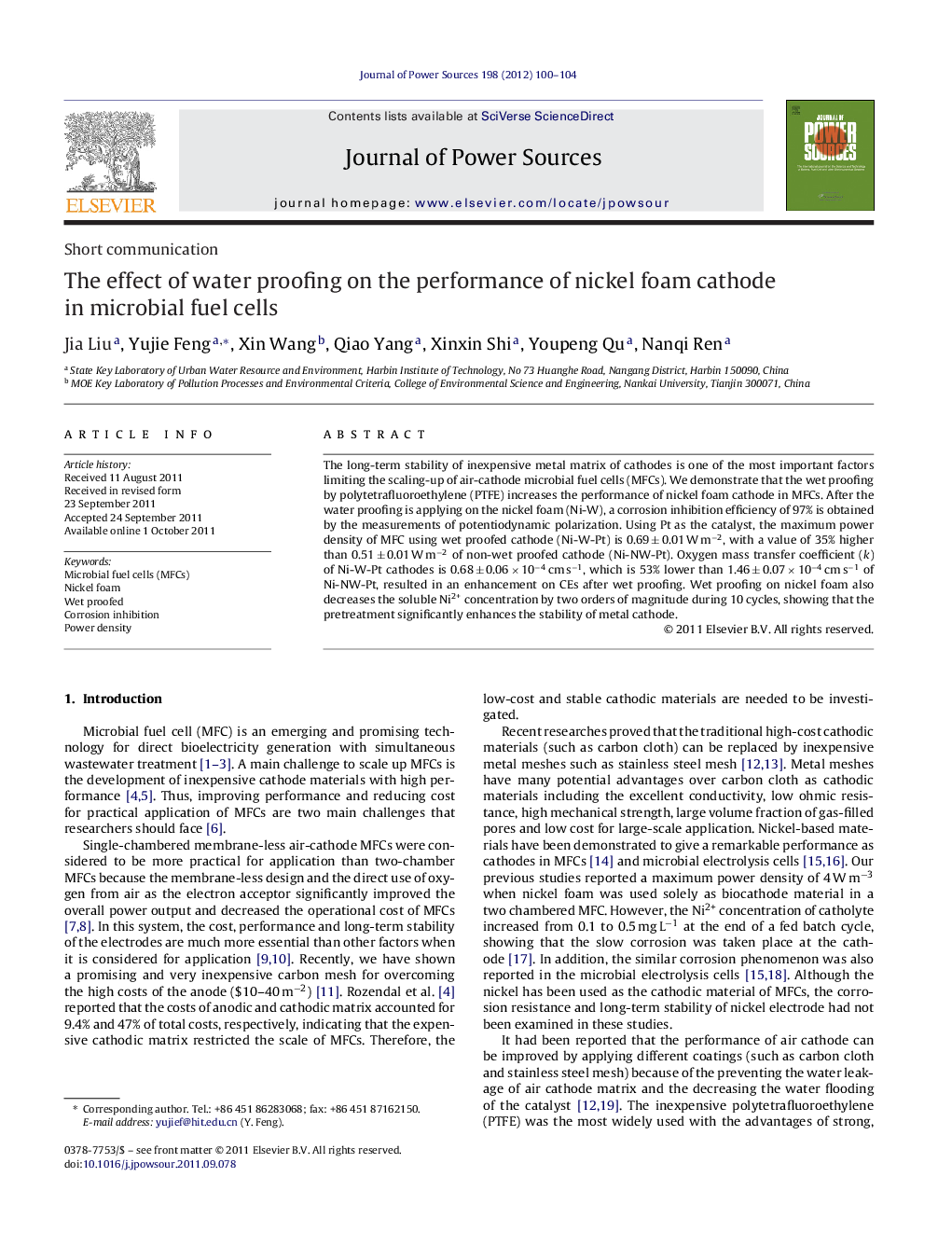| Article ID | Journal | Published Year | Pages | File Type |
|---|---|---|---|---|
| 1288396 | Journal of Power Sources | 2012 | 5 Pages |
The long-term stability of inexpensive metal matrix of cathodes is one of the most important factors limiting the scaling-up of air-cathode microbial fuel cells (MFCs). We demonstrate that the wet proofing by polytetrafluoroethylene (PTFE) increases the performance of nickel foam cathode in MFCs. After the water proofing is applying on the nickel foam (Ni-W), a corrosion inhibition efficiency of 97% is obtained by the measurements of potentiodynamic polarization. Using Pt as the catalyst, the maximum power density of MFC using wet proofed cathode (Ni-W-Pt) is 0.69 ± 0.01 W m−2, with a value of 35% higher than 0.51 ± 0.01 W m−2 of non-wet proofed cathode (Ni-NW-Pt). Oxygen mass transfer coefficient (k) of Ni-W-Pt cathodes is 0.68 ± 0.06 × 10−4 cm s−1, which is 53% lower than 1.46 ± 0.07 × 10−4 cm s−1 of Ni-NW-Pt, resulted in an enhancement on CEs after wet proofing. Wet proofing on nickel foam also decreases the soluble Ni2+ concentration by two orders of magnitude during 10 cycles, showing that the pretreatment significantly enhances the stability of metal cathode.
► The wet proofing by polytetrafluoroethylene (PTFE) was applied on the nickel foam increased the corrosion inhibition efficiency of 97%. ► Using Pt as catalyst, wet proofing with PTFE on nickel foam cathode matrix increased the power output of MFC by 35%. ► Wet proofing increased the corrosion resistance of nickel foam cathode, decreased the soluble Ni2+ concentration by two orders of magnitude.
